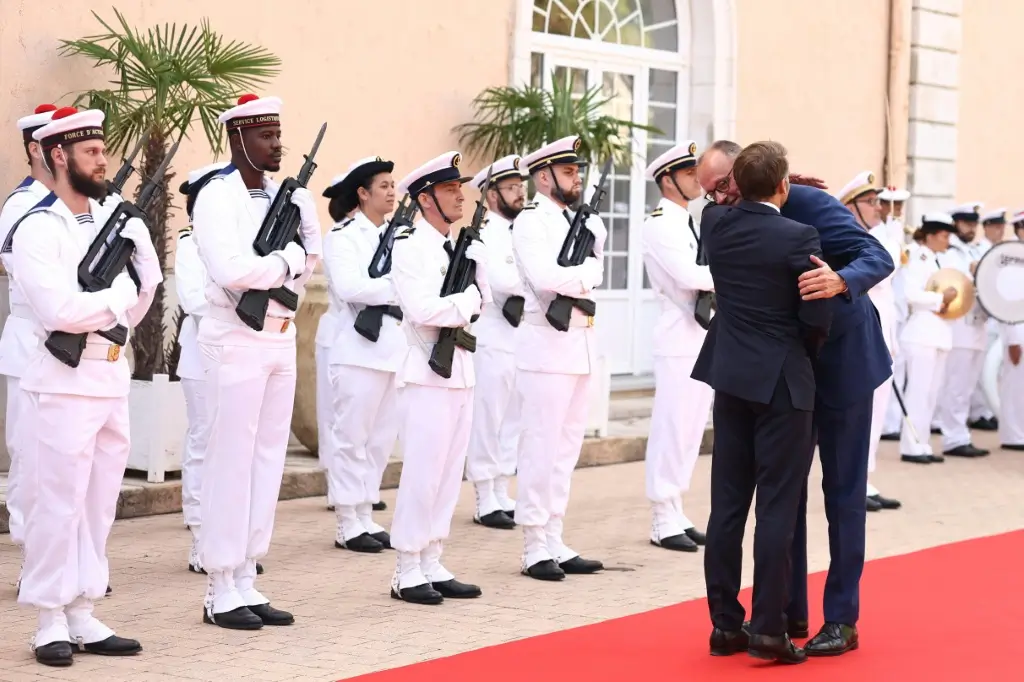
German Chancellor Friedrich Merz (CDU) and French President Emmanuel Macron, along with approximately 20 ministers from both countries, began their discussions on Franco-German cooperation on Friday in Toulon on the Mediterranean coast. At the 25th Franco-German Council of Ministers, the first in Merz's term in office, eight strategy papers and more than two dozen projects will be presented, including those on reducing bureaucracy, energy policy, and strengthening the EU internal market.
Issues that continue to have the potential for conflict between Germany and France are officially off the agenda. These include the allocation of responsibilities for the FCAS fighter jet planned jointly with Spain, or the Mercosur free trade agreement, in which France has so far unsuccessfully insisted on an additional protocol to better protect farmers.
Macron welcomed Merz in bright sunshine at the Fort de Cap Brun, atop a pine-covered hill with a magnificent view of the port city of Toulon and the Mediterranean. "A beautiful place," Merz said appreciatively in French. A naval band in white uniforms played to welcome him. In the afternoon (3:30 p.m.), Merz and Macron were scheduled to answer journalists' questions.
The joint Security and Defense Council will then meet, which includes Merz, Macron, the foreign and defense ministers, as well as high-ranking representatives of the armed forces. Issues on which Berlin and Paris hold differing positions are likely to be discussed, including the transatlantic partnership and the possible deployment of troops to Ukraine in the event of a ceasefire. The last time the Franco-German Defense Council met was in May 2024 at Meseberg Castle.
Macron had hosted Merz for dinner the previous evening at his summer residence, Fort de Brégançon. "In recent weeks, we have significantly converged on the Franco-German positions," Macron said upon the Chancellor's arrival. The Franco-German couple are "completely aligned" on making Europe stronger.
Progress is emerging, particularly on the long-standing controversial issue of nuclear energy. Merz and Macron had already agreed on a new energy policy in the spring. This was intended to ensure equal treatment of all low-emission energies – a paraphrase of the French demand for nuclear energy to be treated equally with renewable energies at the EU level.
How quickly the new Franco-German plans can be implemented remains questionable, however: France is likely to face another change of government soon. Prime Minister François Bayrou plans to put the vote of confidence to the National Assembly on September 8th, and, based on statements made so far by the opposition parties, is likely to lose.
Merz and Macron share a desire to open a new chapter in Franco-German relations and jointly set the tone in Europe. Macron previously welcomed then-Chancellor Angela Merkel (CDU) to the Fort de Brégançon in 2018 and Russian President Vladimir Putin in 2019.